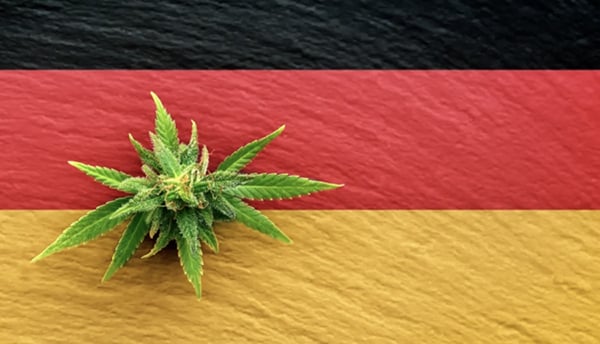Germany Legalizes Cannabis

Germany Legalizes Cannabis

Germany's parliament, the Bundestag, has voted to legalize cannabis for recreational uses, a decision that comes despite concerns from some politicians and medical experts.
The decriminalization legislation now heads to the Bundesrat, which is made up of regional state representatives. If they have no objections, the first part of the legislation will be enacted on April 1st.
Under the new rules, adults can carry small amounts of marijuana for personal use, but it will remain illegal for anyone under the age of 18.
A majority of German parliamentarians (407 to be exact) supported the legislative change, with 226 voting against and four abstaining. The decision comes after intense national debate on the pros and cons of simplifying access to marijuana.
With this move, Germany becomes the third European country after Malta and Luxembourg to legalize recreational marijuana, removing it from the list of prohibited substances.
While possession of drugs is technically banned in the Netherlands, some areas allow the sale of cannabis in designated venues called coffee shops and operate under a policy of tolerance.
In countries such as Australia and the United States, regulations regarding cannabis vary from state to state.
Advocates for the use of medicinal purposes said they were hoping for a positive influence from the decision of Europe's largest economy, which may see other countries follow suit.
The new laws were proposed by Germany's three-party ruling coalition, led by Olaf Scholz of the Social Democratic Party (SDP).
The new legislation means adults will be allowed to grow up to three cannabis plants for personal use. Starting April 1st, they will be allowed to carry up to 50 grams at home and 25 grams in public.
There has been opposition from some of Germany's 16 states responsible for enforcing the law. The southern state of Bavaria, ruled by the Christian Democratic Union (CDU), has urged the government to rethink the policy.
Starting July 1st, licensed nonprofit clubs will also offer marijuana, with membership capped at 500 people, all of whom must be adults. Only members of these clubs are allowed to consume cannabis produced by the clubs.
It is estimated about 7 million Germans use cannabis regularly, with many relying on the drug for medical reasons.
German Health Minister Karl Lauterbach said the aim of the law was to combat the black market, reduce drug-related crime, and reduce the number of drug users.
Notably, the new law maintains the illegality of marijuana use by minors and imposes strict rules on young people. It will also be illegal to smoke cannabis near schools and playgrounds.
Lauterbach stressed that the main goal of the law is to protect children and adolescents. "Legalizing marijuana consumption doesn't mean it's not risky or harmful," he said.
Germany's largest opposition party, the CDU, opposes the legislation. CDU lawmaker Tino Sorge criticized the coalition, accusing them of acting like "state drug dealers" instead of prioritizing the protection of children and young people.
The German Medical Association (GMA) is also strongly opposed to legalizing cannabis. Klaus Reinhardt, President of the GMA, argued that legalizing marijuana would lead to increased consumption and downplay the associated risks, including addiction and developmental damage. He stressed that Germany does not need to legalize cannabis.





